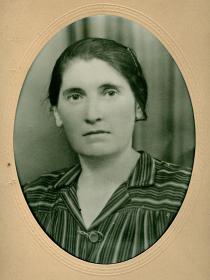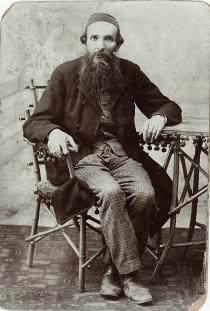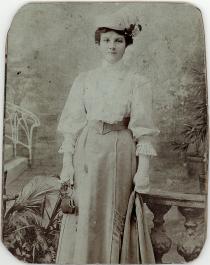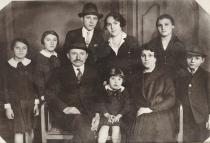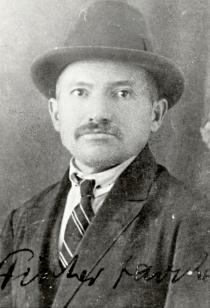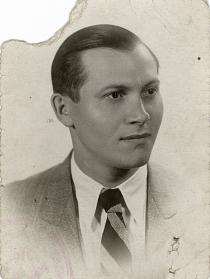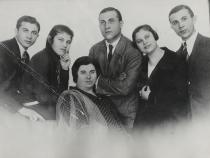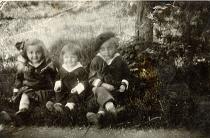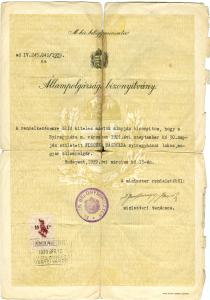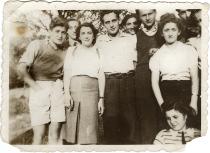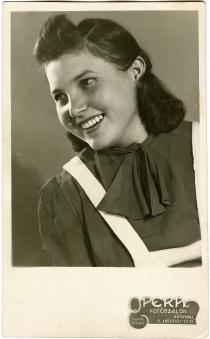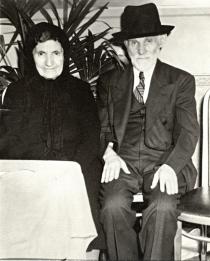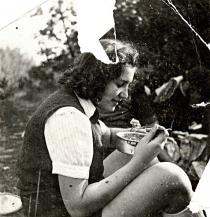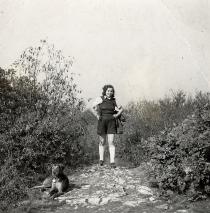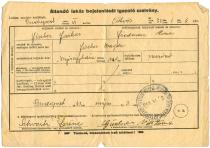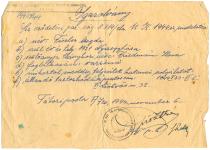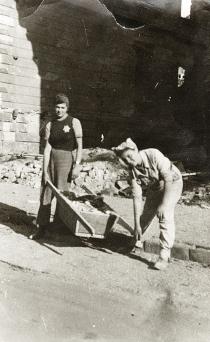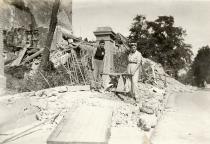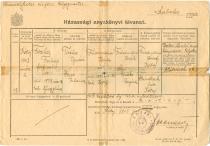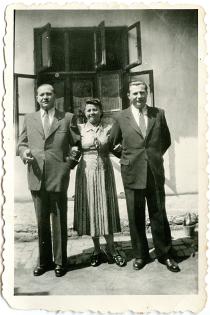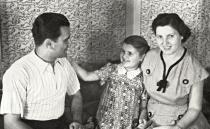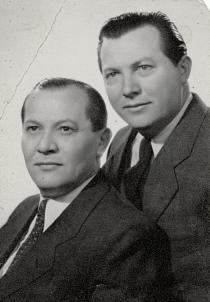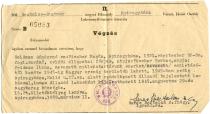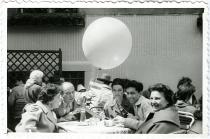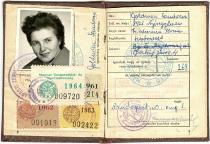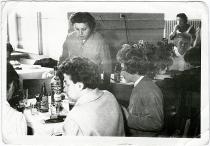This picture was taken around 1925-1930 for the family album. My mother's sister Aunt Leni and her family are in it. The picture was taken in Nyiregyhaza. I adored them, and they loved me, too. I was about 3-4 years old, when Herman - he is standing to the right from Aunt Irma - might have been around 16-18. I remember that I always waited for him on the street. Once I thought that he was coming, and I grabbed someone else's finger. The young man asked me, 'little girl, who are you waiting for?' The first boy from the left is Sandor, next to him is Rezsi, Aunt Leni is sitting, Herman, Rozsi and Farkas.
Aunt Leni's husband died in World War I, so Aunt Leni remained alone with the five children, who were born two to three years apart: Herman was born around 1906, Farkas around 1909, and Sanyi [Sandor] was the youngest. Aunt Leni was older than my mother, she was probably born in 1881 in Kotaj. She was a housewife, so the children learned a trade early and started to work. My father helped them very much. The oldest son, Herman, learned the upholsterer trade; I was about three years old when he was a young man already. I grabbed his finger, sat in his lap?I have such memories of him.
Aunt Leni's middle son Farkas had a son, whom I looked for after 1945. There were children left on the street near St. Stephen's Basilica, who had been collected from the streets. Farkas' child must have been around two to three years old at that time. I had some bread and lard, and I thought I would take it there. It was an awful sight, only the eyes of the children were alive, they couldn't tell their names. There were a couple of doctors and nurses there, but I didn't find Farkas' child, because they didn't know him. The personnel told me, that the Arrow Cross men had come, and they had thrown the ill and dying children on the street just like garbage on a garbage heap"They were happy for the bread and lard, they cut it in small slices and gave it to them to eat.
Aunt Leni's youngest son Sandor was a stitcher, he was a beautiful boy. He joined up, then he was taken to Ukraine and he didn't come home. They were all charming, mere soul people; it was such a closely-knit family, which is rare nowadays. Rozsi was pretty with her long hair, her braids - she was the younger sister. Rezsi, her older sister contributed to the upkeep of the family as soon as she learned sewing. She married Miksa Klein, they opened a dressmaker's shop, and then they had a daughter, Agi.

